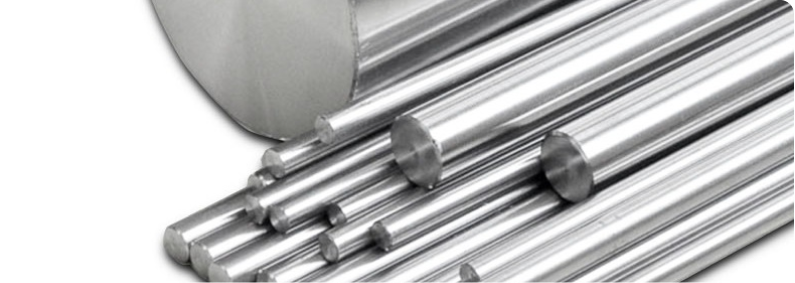Titanium Grade 5 and Grade 23

Titanium Grade 5 and Grade 23 are high-performance titanium alloys widely recognized for their exceptional strength, corrosion resistance, and biocompatibility. Both grades are part of the Ti-6Al-4V family and share similar properties, with Grade 23 being a specialized variant for medical and implant applications.
Titanium Grade 5 (Ti-6Al-4V): The Workhorse Alloy
Titanium Grade 5 is the most commonly used titanium alloy, offering a combination of high strength, lightweight properties, and excellent corrosion resistance. It is widely utilized in aerospace, automotive, marine, and industrial applications.
Key Features of Titanium Grade 5
- High Strength-to-Weight Ratio: Offers excellent mechanical strength while remaining lightweight.
- Corrosion Resistance: Exceptional resistance to corrosive environments, including seawater and industrial chemicals.
- Versatility: Excellent machinability and weldability, making it suitable for complex designs.
- Thermal Stability: Can operate at temperatures up to 400°C (752°F).
- Wear Resistance: Superior to commercially pure titanium grades, suitable for demanding applications.
Chemical Composition of Titanium Grade 5
Element | Percentage |
Titanium (Ti) | Balance |
Aluminum (Al) | 5.5-6.75 |
Vanadium (V) | 3.5-4.5 |
Iron (Fe) | 0.40 (maximum) |
Oxygen (O) | 0.20 (maximum) |
Carbon (C) | 0.08 (maximum) |
Nitrogen (N) | 0.05 (maximum) |
Hydrogen (H) | 0.015 (maximum) |
Titanium Grade 23 (Ti-6Al-4V ELI): For Medical Applications
Titanium Grade 23, also known as Ti-6Al-4V ELI (Extra Low Interstitial), is a variant of Grade 5 specifically designed for applications requiring superior biocompatibility and lower levels of impurities. It is primarily used in medical, dental, and aerospace applications.
Key Features of Titanium Grade 23
- Biocompatibility: Meets stringent medical standards, making it ideal for implants and surgical instruments.
- Low Impurity Levels: Extra low interstitial elements improve ductility and fracture toughness.
- Corrosion Resistance: Exceptional resistance to body fluids, preventing reactions and corrosion.
- Fatigue Strength: Excellent resistance to fatigue under cyclic loading, crucial for medical implants.
- Ease of Sterilization: Can withstand multiple sterilization cycles without degradation.
Chemical Composition of Titanium Grade 23
Element | Percentage |
Titanium (Ti) | Balance |
Aluminum (Al) | 5.5-6.5 |
Vanadium (V) | 3.5-4.5 |
Iron (Fe) | 0.25 (maximum) |
Oxygen (O) | 0.13 (maximum) |
Carbon (C) | 0.08 (maximum) |
Nitrogen (N) | 0.03 (maximum) |
Hydrogen (H) | 0.0125 (maximum) |
Applications
Titanium Grade 5
- Aerospace: Jet engines, airframes, and landing gear components.
- Marine: Offshore platforms, propellers, and seawater piping.
- Automotive: Performance exhaust systems, suspension components, and sports car frames.
- Energy: Turbine blades, heat exchangers, and pressure vessels.
- Industrial: Chemical processing equipment and tools.
Titanium Grade 23
- Medical: Orthopedic implants, dental implants, and surgical tools.
- Aerospace: Components requiring higher ductility and toughness.
- Dental: Crowns, bridges, and abutments for dental prosthetics.
- Biomedical: Implantable devices like pacemaker casings.
Mechanical Properties
Property | Grade 5 (Ti-6Al-4V) | Grade 23 (Ti-6Al-4V ELI) |
Tensile Strength | 895 MPa (130 ksi) | 860 MPa (125 ksi) |
Yield Strength | 825 MPa (120 ksi) | 795 MPa (115 ksi) |
Elongation | 10% | 15% |
Hardness | 36 HRC | 30 HRC |
Available Forms
- Sheets and Plates: For aerospace, marine, and industrial applications.
- Bars and Rods: Ideal for machining and structural uses.
- Pipes and Tubes: Used in the transport of corrosive or high-temperature substances.
- Fittings: Customizable for piping systems.
- Wires: Precision materials for dental and medical applications.
- Forgings: Specialized shapes for aerospace and industrial needs.
FAQs
Grade 23 has extra low interstitial elements, making it more suitable for medical and implant applications due to its superior ductility and biocompatibility.
Yes, both grades are weldable using standard methods. Grade 23 requires more precision in medical applications to preserve its properties.
Medical, dental, and aerospace industries utilize Grade 23 for implants, surgical tools, and components requiring high ductility and biocompatibility.

Products
Industry We Serve
- Oil & Gas industries
- Chemical process industries
- Pump and valve in high pressure component
- Food industries
- Pulp and paper industry
- Aerospace industry
- Power plant
- Mechanical component
- Sugar industry
- Cement industry
